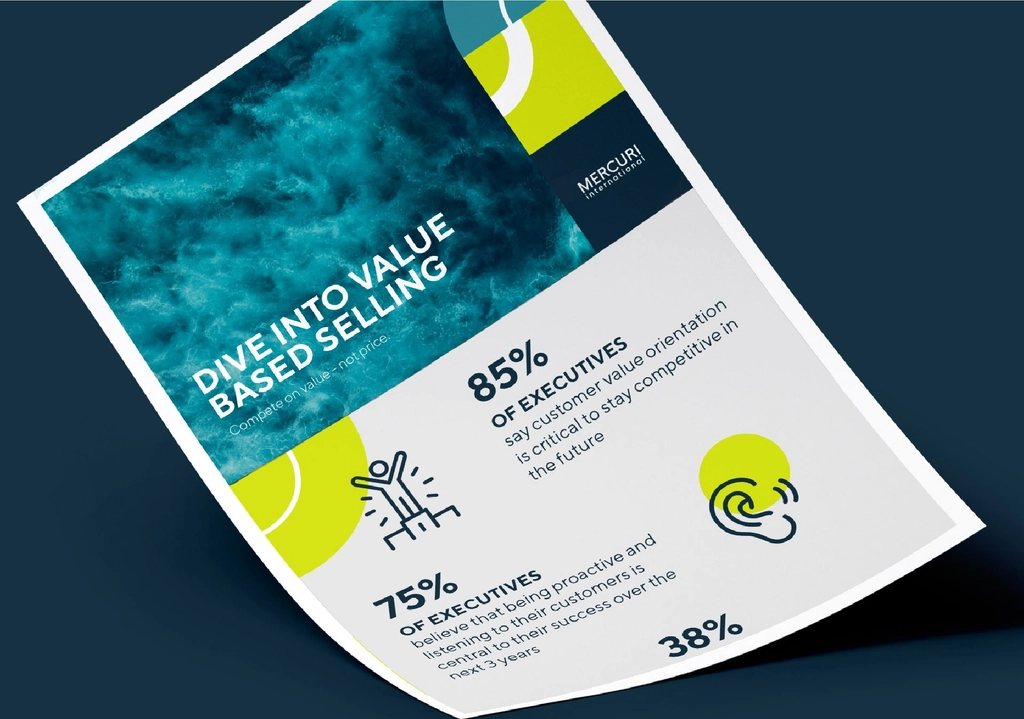The benefits of Value Based Selling
Moving from a product-centric to customer-centric sales model has a number of benefits, both in terms of short term revenue generation and long term growth.

Increase in conversion rates
When you understand your customer’s needs, it’s that much easier to move towards closing the sale.

Sell at higher prices
Demonstrating the total value of a product lets you charge a premium – rather than just undercutting the competition.

Build long-term relationships
Knowing your customer is key to developing meaningful relationships – the basis for long term success.
Success story
VBS in the real world
Listen to Craig Edlin, Global Sales Training Manager at ABB, who explains how Mercuri International made it possible for ABB to train over 4000 sales professionals over time in VBS, and why it’s the most important sales training they do at ABB. Sounds interesting? Listen to the full session on the concept of VBS in today’s business environment.

Case study
ABB used Value Based Selling to overcome challenges in operating across 100+ countries. Mercuri’s training program was successful by providing engaging and practical content aligned with real-world roles, which generated a sense of progress and accomplishment for sales teams by focusing on the value they bring to customers.

Checklist
Compete on value – not price. Differentiate yourself from competitors and create long-lasting relationships with your clients. Find in this checklist which types of value your customers are looking for and which value you could contribute to your customers.

Get started
Mercuri’s Value Based Selling
Want a quick overview of exactly how we apply Value Based Selling training? Our product sheet gives you the details you need.
It’s time to start selling value
What’s the Mercuri difference?
Mercuri International are the sales performance experts who enable sales excellence through people and process development. We offer customized solutions to increase sales results and achieve sales excellence for our clients.

Get started
Contact us
Whatever the challenge, Mercuri International has a learning path for you. Browse through our other learning paths that brings training to wherever your are and when it fits you. Need a customized solution? Contact us to make it happen!
The ultimate guide to VBS
We’ve gathered together a range of resources, all designed to help you understand and get the very most from Value Based Selling.

Why is Value-Based Selling
so important?
Why is Value Based Selling so
critical to transforming sales?
We explore the trend towards a
customer-centric business model.

What’s the top trend
in sales? We explore the
changing nature of ‘value’
‘Customer value orientation’ is
this year’s top trend – we explore
the changing nature of value
and what it means for sales.

What is value
creation in sales?
What do we mean by ‘value
creation’ in sales? We take a
look at how to move from
being a product expert to
a customer expert.
It’s time to start selling value
VBS by the numbers
Just why is Value Based Selling so critical to building long term business growth? View the infographic to find out.




